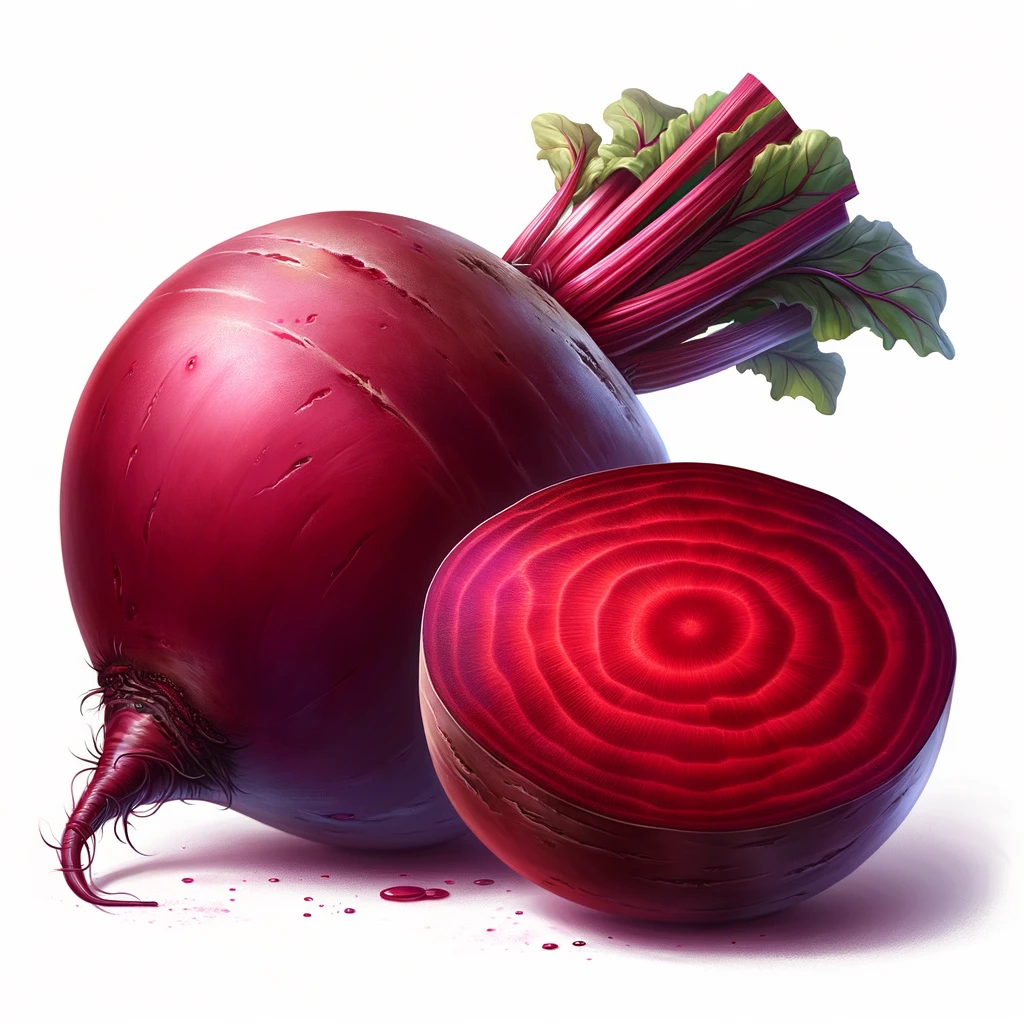In the vibrant world of vegetables, beetroot stands out not just for its deep, rich color but also for its remarkable nutritional profile and health benefits. Whether you’re looking to boost your energy levels, improve your cardiovascular health, or simply enjoy a delicious and nutritious addition to your diet, beetroot is an excellent choice. Let’s delve into the many reasons why this earthy, sweet root vegetable should become a staple in your kitchen.
Nutritional Content of Beetroot:
Beetroot is packed with essential nutrients that contribute to its status as a superfood:
- Vitamins: Beetroot is an excellent source of vitamin C, which supports immune function, skin health, and antioxidant defense. It also provides folate (vitamin B9), crucial for DNA synthesis and repair, and important during pregnancy for fetal development.
- Minerals: Rich in potassium, beetroot helps regulate blood pressure and supports heart health. It also contains manganese, essential for bone formation, nutrient metabolism, and antioxidant defense. Additionally, beetroot provides magnesium, iron, and phosphorus.
- Phytonutrients: Beetroot is loaded with betalains, which are potent antioxidants and anti-inflammatory compounds. Betanin and vulgaxanthin are two major betalains in beets that help reduce oxidative stress and inflammation.
- Anthocyanins: The deep red color of beetroot comes from anthocyanins, powerful antioxidants that protect cells from damage and have anti-cancer properties.
- Macronutrients: Beetroot is low in calories and fat while providing a good amount of dietary fiber, which supports digestive health. A typical serving of beetroot (100 grams) contains about 43 calories, 1.6 grams of protein, 0.2 grams of fat, and 9.6 grams of carbohydrates, including 2.8 grams of dietary fiber.
Health Benefits of Beetroot:
The impressive nutritional profile of beetroot translates into numerous health benefits:
- Cardiovascular Health: The nitrates in beetroot are converted into nitric oxide in the body, which helps relax and dilate blood vessels, improving blood flow and lowering blood pressure. This can reduce the risk of heart disease and stroke.
- Athletic Performance: Beetroot juice is popular among athletes because the nitrates can enhance exercise performance by improving oxygen use and endurance. Studies have shown that consuming beetroot can improve stamina and increase time to exhaustion.
- Anti-Inflammatory Effects: The betalains in beetroot have been shown to reduce inflammation, which is linked to various chronic diseases, including heart disease, diabetes, and cancer.
- Digestive Health: Beetroot is high in dietary fiber, which promotes healthy digestion by preventing constipation, promoting regular bowel movements, and supporting a healthy gut microbiome.
- Brain Health: The nitrates in beetroot may improve cognitive function by enhancing blood flow to the brain, which can help prevent dementia and age-related cognitive decline.
- Detoxification: Beetroot supports the body’s natural detoxification processes. Betalains help the liver detoxify and eliminate toxins from the body, promoting overall liver health.
Targeting Health Conditions:
Beetroot’s diverse range of nutrients makes it beneficial for managing and alleviating various health conditions:
- Hypertension: Regular consumption of beetroot juice has been shown to lower blood pressure in individuals with hypertension, thanks to its high nitrate content.
- Anemia: Beetroot’s iron content can help prevent and treat iron-deficiency anemia by promoting healthy red blood cell production.
- Diabetes: Beetroot has a moderate glycemic index and contains antioxidants that can help regulate blood sugar levels and improve insulin sensitivity.
Incorporating Beetroot into Your Diet:
Beetroot is incredibly versatile and can be enjoyed in various forms. Raw beetroot can be grated into salads, blended into smoothies, or juiced. Roasted beetroot makes a delicious addition to salads, grain bowls, and side dishes. You can also enjoy pickled beetroot as a tangy snack or add beetroot powder to soups, sauces, and baked goods for an extra nutritional boost.
Conclusion:
Beetroot is a nutritional powerhouse that offers a wide array of health benefits. From improving cardiovascular health and athletic performance to supporting digestive health and brain function, this vibrant vegetable is a must-have in any health-conscious diet. By incorporating beetroot into your meals, you can enjoy its delicious flavor while reaping the numerous benefits it provides. So, why not start today? Embrace the power of beetroot and take a step towards a healthier, more vibrant you.





